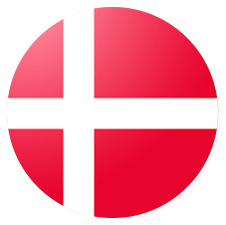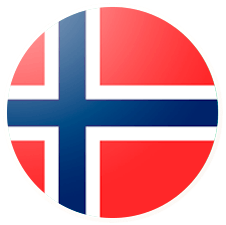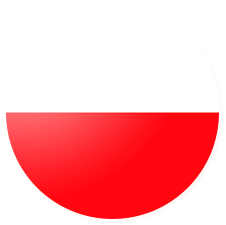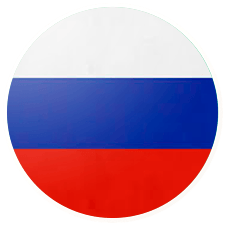Language Levels
Los niveles de cursos de Language Trainers corresponden a los siguientes
- Common European Framework of Reference for Languages (CEFR)
- American Council on the Teaching of Foreign Languages Proficiency Guidelines (ACTFL)
- Canadian Language Benchmarks (CLB)
- International Second Language Proficiency Ratings (ISLPR)
General niveles
| Language Trainers niveles | Language Trainers cursos individuales(número de horas necesarias para alcanzar los niveles inferiores a partir del nivel principiante) | Language Trainers cursos en grupo(número de horas necesarias para alcanzar los niveles inferiores a partir del nivel principiante) | Niveles del MCER (Europa) | Niveles ACTFL (Estados Unidos) | Niveles CLB (Canadá) | Niveles ISLPR (Australia) | |
|---|---|---|---|---|---|---|---|
| Principiante | Language Trainers nivel 0 | Novato Bajo | |||||
| Inicial | Language Trainers nivel 1 | Language Trainers primaria (30 hs) | Language Trainers primaria (50 hs) | A1 | Novato (Medio/Alto) | Competencia básica inicial, Competencia básica en desarrollo | Dominio de las fórmulas (0+) Dominio mínimo 'creativo' (1-) |
| Pre-intermedio | Language Trainers nivel 2 | Language Trainers pre-intermedio 1 (50 hs) Language Trainers pre-intermedio 2 (80 hs) | Language Trainers pre-intermedio 1 (80 hs) Language Trainers pre-intermedio 2 (100 hs) | A2 | Intermedio (Bajo/Medio) | Dominio básico adecuado, Dominio básico fluido | Competencia Transaccional Básica (1) Competencia Transaccional (1+) |
| Intermedio | Language Trainers nivel 3 | Language Trainers itermedio 1 (100 hs) Language Trainers intermedio 2 (150 hs) | Language Trainers intermedio 1 (150 hs) Language Trainers intermedio 2 (200 hs) | B1 | Intermedio Alto | Competencia intermedia inicial, competencia intermedia en desarrollo | Competencia social básica (2) |
| Intermedio Superior | Language Trainers nivel 4 | Language Trainers Intermedio Superior 1 (200 hs) Language Trainers Intermedio Superior 2 (250 hs) | Language Trainers Intermedio Superior 1 (250 hs) Language Trainers Intermedio Superior 2 (300 hs) | B2 | Avanzado (Bajo/Medio/Alto) | Dominio intermedio adecuado, Dominio intermedio fluido | Competencia social (2+) |
| Avanzado | Language Trainers nivel 5 | Language Trainers Avanzado 1 (300 hs) Language Trainers Avanzado 1 (300 hs) | Language Trainers Avanzado 1 (400 hs) Language Trainers Avanzado 2 (550 hs) | C1 | Superior | Competencia inicial avanzada, desarrollo de la competencia avanzada | Formación 'Profesional' Básica (3) Formación 'Profesional' Básica Plus (3+) |
| Competente | Language Trainers nivel 6 | Language Trainers Competente 1 (500 hs) Language Trainers Competente 2 (650 hs) | Language Trainers Competente 1 (700 hs) Language Trainers Competente 2 (850 hs) | C2 | Distinguido | Adecuado Dominio avanzado, Fluido Dominio avanzado | 'Perfeccionamiento' profesional (4) 'Perfeccionamiento' profesional avanzado (4+) |
Descripción de Nivel
Principiante
No tienes conocimiento del idioma o conoces solamente algunas palabras o frases como saludos, números, presentarte o decir cómo te sientes.
Inicial
Puedes comprender y utilizar expresiones y frases básicas para objetivos concretos. Puedes presentarte, realizar y responder preguntas como dónde vives, a quiénes conoces, o qué cosas tienes. Puedes interactuar de forma simple con los demás, siempre y cuando hablen lentamente y tengan voluntad de ayudarte.
Pre-intermedio
Puedes comprender oraciones y expresiones frecuentes relacionadas a tópicos relevantes (información personal y familiar, shopping, empleo). Puedes comunicarte en tareas simples y rutinarias que requieran un intercambio de información y describir en términos sencillos, aspectos sobre tus antecedentes, tu entorno, o temas urgentes.
Intermedio
Puedes comprender los aspectos principales de asuntos frecuentes en el trabajo, la escuela o el tiempo de ocio. Puedes lidiar con situaciones que se presentan cuando viajas a un país extranjero. Puedes elaborar textos simples sobre temáticas familiares o de interés personal y describir experiencias, eventos,planes y sueños, dando brevemente razones y explicaciones.
Intermedio Superior
Puedes comprender los puntos centrales de temas complejos tanto concretos como abstractos, incluyendo discusiones técnicas de tu campo de especialización. Puedes interactuar con nativos con mayor facilidad. También puedes producir textos claros y detallados sobre un gran número de temas y explicar tu punto de vista, presentando ventajas y desventajas de varias opciones.
Avanzado
Puedes comprender un gran número de textos avanzados y complejos, reconociendo su significado implícito. Puedes expresarte con fluidez sin necesidad de buscar expresiones. Utilizas el lenguaje de manera flexible según la necesidad (académica, social, profesional etc). Puedes producir textos claros y bien estructurados sobre temáticas complejas, demostrado un correcto uso de conectores, y frases de cohesión.
Competente
Puedes comprender con facilidad todo lo que lees o escuchas. Puedes resumir información de diferentes fuentes, reconstruyendo argumentos y presentándolos de forma coherente. Puedes expresarte espontáneamente con fluidez y precision, diferenciando matices más finos del lenguaje, aún en situaciones más complejas.
Número de horas para pasar de un nivel al siguiente
Nuestros cursos se adaptan a su nivel de idioma y a sus objetivos de aprendizaje, y utilizamos materiales específicos para cubrir los temas que necesita aprender, y mucho más. Nuestros formadores adaptan los contenidos del curso a tus necesidades lingüísticas exactas, por lo que puedes hacernos cualquier sugerencia a lo largo del curso.
Para pasar de un nivel al siguiente, se necesitan entre 30 y 250 horas, dependiendo de la dificultad del nivel y de otros factores que puede ver a continuación. Normalmente, cuanto más avanzado es el alumno, más horas se necesitan para ascender a la siguiente clasificación.
En el caso de lenguas más exóticas, como el chino mandarín, el árabe, el japonés, el coreano y el hebreo, hay que añadir 100 horas al número de horas necesarias para pasar de un nivel al siguiente, debido a los diferentes retos en cuanto a pronunciación, vocabulario, gramática, ortografía y sistemas de escritura. El japonés, por ejemplo, tiene 3 escrituras (alfabetos) diferentes y muchos caracteres muy utilizados tienen más de un significado. Otro aspecto difícil de algunas de estas lenguas es el del tono y la entonación, donde pequeñas diferencias pueden cambiar por completo el significado de lo que se está diciendo.

Factores que determinan el progreso de un estudiante de idiomas
El número de horas necesarias para progresar en un idioma depende de varios factores, como:
- Su lengua materna: Si su lengua materna y su lengua meta están relacionadas (por ejemplo, si ya habla una lengua románica, como el francés, el español, el portugués y el italiano, y está aprendiendo otra de esas lenguas), aprenderá más fácil y rápidamente, ya que reconocerá el vocabulario y las reglas gramaticales.
- Conocimiento de otras lenguas: Si tienes experiencia en el aprendizaje de idiomas y conoces 2 o más lenguas, podrás adquirir una nueva con mayor rapidez.
- Dificultad de la lengua: Si el idioma que va a aprender es muy distinto de los que conoce, prepárese para dedicar mucho tiempo a aprender los conceptos básicos. Por ejemplo, si quieres aprender chino mandarín y tu formación lingüística no tiene nada que ver, te costará un gran esfuerzo dominar los caracteres y otras peculiaridades del idioma, mucho más que si fueras a estudiar otra lengua que utilice el alfabeto latino (a, b, c, etc.).
- Vivir en un país donde se hable la lengua de destino: La práctica de la conversación que se obtiene por el mero hecho de vivir entre hablantes nativos de la lengua que se quiere aprender tiene un valor incalculable.
- Tiempo para el autoaprendizaje: Cuanto más tiempo dediques al aprendizaje de idiomas en casa, ya sea haciendo los deberes que te dé el profesor o cualquier actividad relacionada con el idioma (como ver la televisión, películas, escuchar la radio, leer periódicos en línea, consultar páginas web, etc ), más rápido podrás progresar.
- Oportunidad de practicar el idioma con personas que no sean su profesor: Estar expuesto a otros acentos le ayudará a mejorar enormemente su capacidad de escucha.
- Motivación para aprender la nueva lengua: Una fuerte motivación es el ingrediente secreto del aprendizaje de idiomas. Si estás decidido a obtener buenos resultados y/o tienes una necesidad real de utilizar el idioma, hay muchas más posibilidades de éxito.
- La edad: Los especialistas en idiomas afirman que la edad es un factor importante a la hora de adquirir un nuevo idioma. Aunque muchos dicen que cuanto más joven seas, mejor (todos hemos visto cómo la mayoría de los niños pequeños aprenden idiomas en cuestión de meses), creemos firmemente que, con una fuerte determinación, las personas mayores pueden hacerlo mejor que los jóvenes: ¡todo es cuestión de concentración!
Acerca de nuestros tests en línea
Para hacerse una idea de su nivel actual puede realizar nuestra prueba en línea, y los resultados instantáneos le indicarán su capacidad actual basándose en las referencias mencionadas. Tenga en cuenta que esta prueba se aproxima a su nivel, ya que no evalúa todas las capacidades lingüísticas, como hablar y escuchar. Sin embargo, al inicio de tu curso, tu profesor designado evaluará todas tus habilidades lingüísticas y las clases se centrarán en desarrollar las áreas del idioma en las que consideres que necesitas más ayuda o en las que quieras centrarte.




















